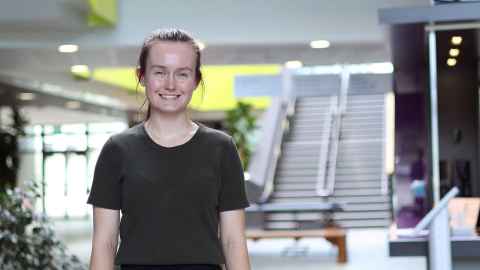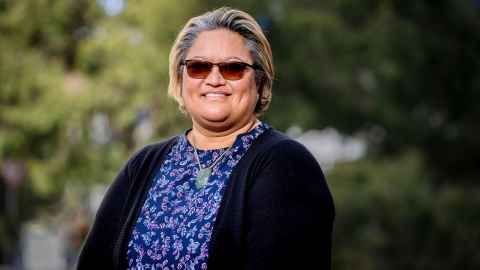Award recipients aim to improve Māori cancer care
15 February 2024
Two University of Auckland researchers are committed to improving equity in cancer care.

Two University researchers committed to maximising Māori health gains are receiving funding for their research into improving cancer care.
Te Kāhui Matepukupuku o Aotearoa (the Cancer Society of New Zealand) and Hei Āhuru Mōwai Māori Cancer Leadership Aotearoa partnered three years ago to award Māori cancer researchers who are addressing health inequities.
Cancer Society Tumu Whakarae (Chief Executive) Dr Rachael Hart says cancer disproportionately affects Māori, and the Cancer Society “wants to be part of the solution” to address this inequity.
“We are very proud of our partnership with Hei Āhuru Mōwai to increase the diversity of cancer research in Aotearoa.”
University of Auckland paediatric dietitian Alexis Ross is receiving an award. Her PhD research focuses on co-designing a prehabilitation pathway for children with acute lymphoblastic leukaemia (ALL) that optimises nutrition and physical activity.
Alexis’ research will break down into four projects: how changes to nutritional status (measured using weight and height) are associated with survival; the types of nutrition, activity and mood challenges faced by patients and whānau; how we can draw on these experiences to co-design a support pathway; and how this can be built into treatment protocols for ALL.
Alexis (Ngāti Kahungunu) says as a newly registered Māori dietitian, her interest in improving the nutrition-related care and outcomes for Māori patients and their whānau has both a personal and professional perspective.
“In 2015, my cousin was diagnosed with ALL and received her treatment at Starship Blood and Cancer Centre. This gave me insight into how complex the impact of child cancer is. Many of the side effects persist beyond treatment completion, leaving whānau to navigate a ‘new normal’ with little support.”
Alexis says it was “disheartening” to see recent diagnosis data revealing significant differences in the survival statistics of Māori children and young people compared to non-Māori.

Nurse consultant Stella Williams-Terei is also from the University of Auckland and receives a Māori Cancer Researcher Award for her masters research looking at how Māori nurses contribute to cancer care and navigation for Māori patients.
Stella (Te Rarawa, Te Aupōuri, Ngāpuhi) says there is a lack of Māori cancer nurses in Aotearoa/New Zealand, and the cancer care workforce does not reflect the Māori population or the high burden of cancer for Māori.
Her research aims to explore the experiences of Māori cancer nurses and build greater understanding of the contribution Māori nurses make in cancer care and navigation.
“This kaupapa has been with me a few years. I have been pondering it, developing it, and ensuring I have the right people around me to support this research.”
Media contact
FMHS media adviser Jodi Yeats
M: 027 202 6732
E: jodi.yeats@auckland.ac.nz